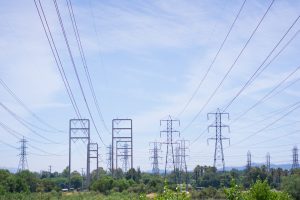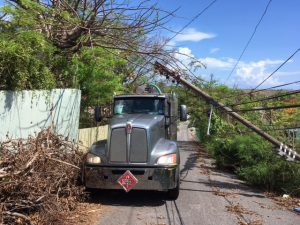Disaster Scenario | Power Grid Failure
Modern man has become extremely dependent on electricity and the power grid that supplies it. Unfortunately, anyone who lives in a hurricane prone area or even in an area where severe winter weather occurs knows that power can go out at any moment and often does in times of crisis. Are you ready?
In 2017 hurricane Irma showed the world just how fragile our power grid is when it tore through Puerto Rico on it’s way to mainland U.S. In a recent Washington Examiner article, it was stated that “Puerto Rico won’t have full power back until February” 2018. The category-5 storm made landfall in early September, then on September 20th another category-5 storm named Maria made landfall causing even more damage. After the storms had moved on, 3.4 million of the islands inhabitants were without power. As of Dec 15th 2017 only 95% if the island had their grid repaired and had full power. Some residents have been without power for more than 90-day. Imagine if the same situation played out farther north, where electricity is the main way people fight the cold in their homes.

There are other reasons the power grid could go down:
- Earthquake
- Flooding
- Tornados
- Electro magnetic pulse
- Cyber attacks
- Solar Flares
- Terrorism
- Ice on the lines
- And many other scenarios
This could effect you and your family at any time of the year. It could happen in the middle of a cold winter or at the times of extreme heat in the summer. So be prepared!
According to Ready.gov here are a few things you can do:
Before a Power Outage
- Build or restock your emergency preparedness kit, including a flashlight, batteries, cash, and first aid supplies.
- Make sure you have alternative charging methods for your phone or any device that requires power. For more information visit: Get Tech Ready
- Charge cell phones and any battery powered devices.
- Know where the manual release lever of your electric garage door opener is located and how to operate it.
- Purchase ice or freeze water-filled plastic containers to help keep food cold during a temporary power outage.
- Keep your car’s gas tank full-gas stations rely on electricity to power their pumps. If you use your car to re-charge devices, do NOT keep the car running in a garage, partially enclosed space, or close to a home, this can lead to carbon monoxide poisoning.
- Learn about the emergency plans that have been established in your area by visiting your state’s or local website so you can locate the closest cooling and warming shelters.
- If you rely on anything that is battery-operated or power dependent like a medical device determine a back-up plan. For more planning information tips visit: Seniors and Individuals with Disabilities and Others with Access and Functional Needs

During a Power Outage: Safety Tips
- Only use flashlights for emergency lighting, candles can cause fires.
- Keep refrigerator and freezer doors closed. Most food requiring refrigeration can be kept safely in a closed refrigerator for several hours. An unopened refrigerator will keep food cold for about 4 hours. A full freezer will keep the temperature for about 48 hours. For more information about food safety visit our food page.
- Take steps to remain cool if it is hot outside. In intense heat when the power may be off for a long time, consider going to a movie theater, shopping mall or “cooling shelter” that may be open in your community. If you remain at home, move to the lowest level of your home, since cool air falls. Wear lightweight, light-colored clothing. Drink plenty of water, even if you do not feel thirsty.
- Put on layers of warm clothing if it is cold outside. Never burn charcoal for heating or cooking indoors. Never use your oven as a source of heat. If the power may be out for a prolonged period, plan to go to another location (the home of a relative or friend, or a public facility) that has heat to keep warm.
- Turn off or disconnect appliances and other equipment in case of a momentary power “surge” that can damage computers and other devices. Consider adding surge protectors.
- If you are considering purchasing a generator for your home, consult an electrician or engineer before purchasing and installing.
- Only use generators away from your home and NEVER run a generator inside a home or garage, or connect it to your home’s electrical system.
Follow these tips and don’t be caught out in the cold or sweat it when the power goes out this summer!








